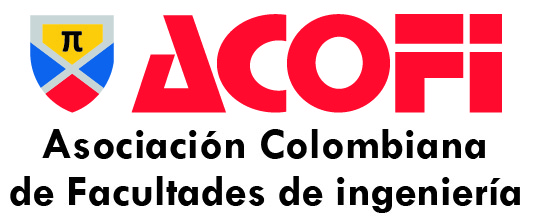Management information systems, an alternative to professional formation in information and communication technologies
DOI:
https://doi.org/10.26507/rei.v13n25.836Keywords:
Management Information Systems, Information Systems, Information and Communication Technologies, CIOAbstract
Management Information Systems is a discipline related to computer science, in conjunction with Systems Engineering that studies ICT as the function of the business and the form of manage it in order to add value to the organizations. This paper presents a vision of what is the management information systems, as an alternative to the training of the systems engineer, the evolution of their professional role in systems, their competences, areas of study and research areas and its status from the point of view of university careers in the Colombian context.Downloads
References
Csorny, L., Careers in the growing field of information technology services, Beyond Numbers Employ. Unempl. vol. 2, no. 9, 2013.
Colegio de Ingenieros del Perú, “Denominaciones y Perfiles de las Carreras en Ingeniería de Sistemas, Computación e Informática.,” Lima - Perú, 2006.
Maes, R., An integrative perspective on information management, Inf. Manag. Setting Scene, no. April, pp. 11–26, 2007.
ABET, “CRITERIA FOR ACCREDITING COMPUTING PROGRAMS. 2016-2017,” 2017. [Online]. Available: http://www.abet.org/accreditation/accreditation-criteria/criteria-for-accrediting-computing-programs-2016-2017/. [Accessed: 20-Aug-2017].
[5] Carr, N., Las Tecnologías de la Información. ¿Son realmenta una ventaja competitiva? Boston, 2004.
[6] Lutchen, M. D., Dirigir las TI como un negocio, Edición en. McGraw-Hill / Interamericana Editores, 2005
[7] M. Martinez. ICT, Productivity and Organizational Complementarit, Emerging Themes in Information Systems and Organization Studies, pp 271-280, 2011.
Torrent-Sellens, J., y Ficapal-Cusí, P., TIC, cualificación, organización y productividad del trabajo: un análisis empírico sobre las nuevas fuentes de la eficiencia empresarial en Cataluña. Investigaciones Regionales. 20, pp. 93-115, 2009.
Miller, K., Organizational Communication: Approaches and Processes (6th ed.). Wadsworth: CENGAGE Learning, 2012.
Barney, J.B., Firm resources and sustained competitive advantage. Journal of Management, Vol.17, pp. 99–120, 1991.
L. Portela, R. Carvalho, J. Varajão y L. Magalhães. A Review of Chief Information Officer’ Main Skills. Organizational, Business, and Technological Aspects of the Knowledge Society. Third World Summint on the Knowledge Society, WSKS 20101, Corfu, Greece, September 2010 Proceedings. Niltiadir D. Lytras et al. (Eds.), 2010.
Berray, T. y Sampath, R.,The Role of the CTO: Four Models for Success. http://www.brixtonspa.com/Career/The_Role_of_the_CTO_4Models.pdf
Singh, A. y Hess, T., How Chief Digital Officers Promote the Digital Transformation of Their Companies. MIS Quarterly Executive 16(1), pp. 1-17, 2017.
Fortino, A., “The New CIO: From Technician to Business Strategist and the Implications for E-Commerce,” in IEEE International Conference on e-Business Engineering, pp. 139–146, 2008.
Conneally, T., “Chief Digital Officer’ is the next hot executive title, says Gartner,” 2012.
Association for Computing Machinery (ACM) y IEEE Computer Society. Computer Engineering Curricula 2016. Curriculum Guidelines for Undergraduate Degree Programs in Computer Engineering. 2015.
Andersen, K. V. y Vendelo, M. T., The past and future of information systems. London, Oxford, Elseiver, Butterworth-Heinemann, 2004.
Avison, D., The past and future of information systems: 1976-2006 and beyond, Santiago de Chile, IFIP 19th World Computer Congress, 2006.
Evans, N., Chapter 2 - Information Technology Jobs and Skill Standards. Technology Everywhere, A Campus Agenda for Educating and Managing Workers in the Digital Age, Brian L. Hawkins, Julia A. Rudy, and William H. Wallace, Jr., Editors, EDUCCASE, 2002.
DeLone, W. y McLean, E.R., "The DeLone and McLean Model of Information Systems Success: A Ten-Year Update." Journal of Management Information Systems, 19(4), pp. 9-30, 2003.
Pettigrew, A. M., "On Studying Organizational Cultures." Administrative Science Quarterly, 24(4), pp. 570-581, 1979.
Dobson, P., "Critical realism and information systems research: why bother with philosophy?". Information Research, 7(2): 14, 2002.
Rogers, E. M., Diffusion of Innovations. New York, The Free Press, 2003.
Burns, T. y Stalker, G.M., The Management of Innovation. Oxford, Oxford University Press, 1994.
AIS. www.aisnet.org, [consulta hecha el 14 de junio de 2017].
Apigian, C. and Gambill, S., “A descriptive Study of Graduate Information Systems Curriculums,” Review of Business Information Systems., vol. 18, no. 2, pp. 47–52, 2014.
Gurung, A., “Improving the Online Course in Principles of Management Information Systems,” International. Journal of Computer and Inormation Technology., vol. 6, no. 3, pp. 150–154, 2017.
Sistema Nacional de Informaciòn de la Educaciòn SUperior. SNIES. http://www.mineducacion.gov.co/sistemasdeinformacion/1735/w3-propertyname-2672.html
Ike C. Ehie (2002) Developing a Management Information Systems (MIS) Curriculum: Perspectives From MIS Practitioners, Journal of Education for Business, 77:3, 151-158, DOI: 10.1080/08832320209599064
Downloads
Published
Versions
- 2023-08-29 (2)
- 2018-02-01 (1)
How to Cite
Issue
Section
License
Total or partial reproduction of the documents published in the journal is authorized only when the source and author are cited.
| Article metrics | |
|---|---|
| Abstract views | |
| Galley vies | |
| PDF Views | |
| HTML views | |
| Other views | |









